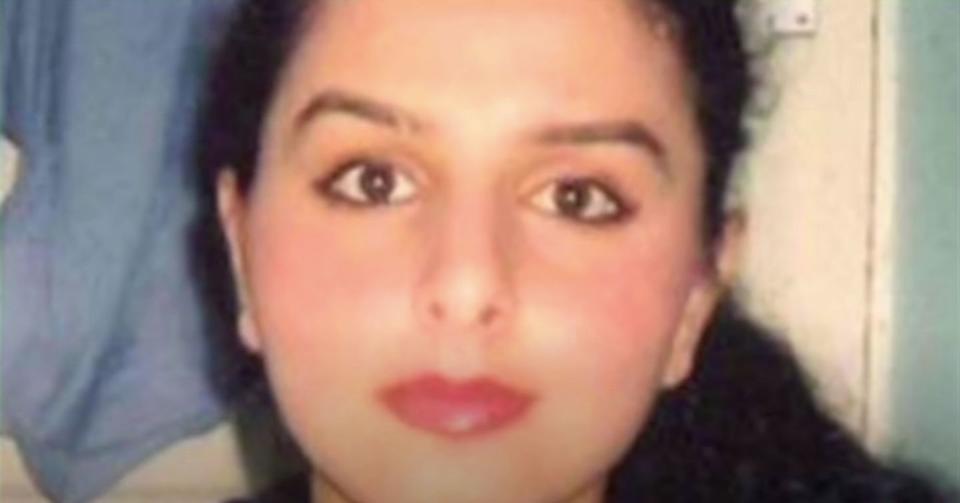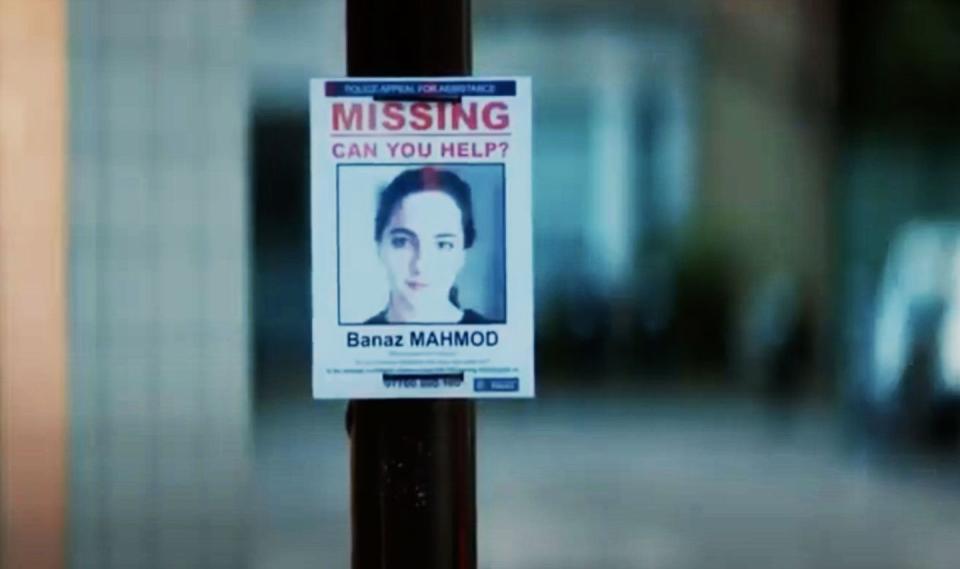Honour on ITV – The controversy, explored

Note: contains details of the case covered in Honour on ITV.
When it was first announced that the murder of Banaz Mahmod, a 20-year-old British Muslim woman, was going to be the subject of a TV drama, there was some backlash.
Furquan Akhtar, a writer for film and television who has worked on titles for Sky, Netflix and the BBC, tweeted: "It shifts the story from being about her [Banaz] to the white detective who "got her justice". The project has a white lead, writer and director."
ITV have announced a drama about Banaz Mahmod. An Iraqi Kurdish Muslim woman who was the victim of a so called “honour” killing. It shifts the story from being about her to the white detective who “got her justice”. The project has a white lead, writer and director.
— Furquan Akhtar (@furquan) June 24, 2019
There were a number of people who shared his disapproval, including one individual who asked why Deeyah Khan, an award-winning documentary film director, had not helmed the series.
"Banaz's story only came to light properly because of the powerful documentary [Banaz: A Love Story] Deeyah Khan created," he wrote.
Another responded: "I agree. I watched Khan's documentary recently. It was incredibly powerful and told Banaz's story respectfully.
"I don't understand why it needs to be sensationalised for TV entertainment. I think this is distasteful. As for the 'hero' detective... her job is to solve crime."

Vinay Patel, a screenwriter and playwright whose credits include Doctor Who, The Good Karma Hospital and Murdered by My Father, a film which tells the fictional story of an "honour" killing, also took issue with a statement released by the drama's screenwriter Gwyneth Hughes in which she described the story as 'uplifting'.
"'This story is ultimately so uplifting' is a strange way to see this, especially since her boyfriend, who was torn apart by these events, ended up dying by suicide years later."
Also "this story is ultimately so uplifting" is a strange way to see this, especially since her boyfriend, who was torn apart by these events, ended up dying by suicide years later:https://t.co/3V5CXfMj3l
— Vinay Patel (@VinayPatel) June 24, 2019
The work that Detective Chief Inspector (DCI) Caroline Goode and her team did to unearth what happened to Banaz is remarkable. The drama showcases their dogged determination to ensure that her killers were brought to justice after repeated failings by the police to protect Banaz while she was still alive.
But to describe Honour as "uplifting" is at the very least tactless given that a young woman with her whole life ahead of her was murdered, betrayed by the people who were supposed to love and protect her. Banaz's boyfriend, as mentioned, is also dead.
The actions of Goode and others working on the case, while commendable and, at times, extraordinary, do not change that.
You will marvel at the lengths that the police went to, and their efforts are both noteworthy and deserving of praise, but you'll be left feeling cold as the final credits roll.

There is also the distinct feeling throughout Honour that Banaz has taken a backseat in her own story.
With just two episodes in the series, time is limited, so much so that you don't come away with an in-depth understanding of who this young woman was or aspired to be.
Real-world limitations could partly be to blame for that.
Members of her own family and community were responsible for or complicit in her death. That, in turn, eliminates a source which is typically rich with loving, familial anecdotes and details that are essential in fleshing out individuals for those who have never spent time in their company.
But even with that avenue blocked off, this feels like Goode's story, not Banaz's, and describing the drama as "uplifting" further emphasises that.

If you've watched interviews with the former DCI, her sorrow about the death of Banaz is palpable. There's no question that she was emotionally tethered to that investigation. But the series' fondness for repeated close-ups of a teary-eyed Hawes, or moments when her character is so wrapped up in the sheer weight of her grief that she doesn't hear the phone ringing, or the cinematic trope of having the protagonist gaze mournfully into the grey murk of the Thames, verges on mawkishness.
There's a particular scene where Goode is watching a video of Banaz lying in a hospital bed. The young woman is visibly distressed, overflowing with despair and terror. The footage is interspersed with shots of the lead detective, her eyes brimming with tears, sorrow splashed all over her face.
It's one of numerous moments determined to ensure that you understand just how crushed Goode is, above all else, and you're once again left with the feeling that this is, at its roots, about her.

We're told at the beginning of parts one and two that while "this is a true story...some names have been changed and some characters, details and scenes created for the purposes of dramatisation".
And it's there that the danger lies, opening up the true-crime genre to accusations of sensationalism.
While Honour is largely compassionate and responsible in its re-telling of this story, its constant need to place Goode's emotions front and centre is an unwelcome and unnecessary intrusion.
Honour airs tonight (Monday, September 28) at 9pm on ITV.
If you've been affected by the issues raised in this feature, a number of organisations may be able to offer help and support. In an emergency, call 999:
IKWRO (Iranian and Kurdish Women’s Rights Organisation) aims to protect Middle Eastern and Afghan women and girls who are at risk of ‘honour’-based violence, forced marriage, child marriage, female genital mutilation and domestic violence.
The NHS website has information about FGM, and if you're concerned that someone may be at risk, call the NSPCC helpline on 0800 028 3550 or fgmhelp@nspcc.org.uk.
If you're trying to stop a forced marriage or you need help leaving a forced marriage, call the Forced Marriage Unit (FMU) on 0207 008 0151 or email fmu@fcdo.gov.uk.
The National Rape Crisis Helpline is 0808 802 9999, and Rape Crisis Scotland's helpline is 08088 01 03 02.
The National Domestic Violence Helpline, run in partnership between Refuge and Women's Aid, is free and open 24/7. Call 0808 2000 247.
Ashiana offers help, support and guidance to women in need from Asian, Turkish and Iranian communities. Services include specialist advice and advocacy and confidential, one-to-one counselling.
Samaritans (116 123, www.samaritans.org) and Mind (0300 123 3393, www.mind.org.uk) can provide support on a variety of mental health matters.
Digital Spy has launched its first-ever digital magazine with exclusive features, interviews, and videos. Access this edition witha 1-month free trial, only on Apple News+.
Interested in Digital Spy's weekly newsletter? Sign up to get it sent straight to your inbox.
You Might Also Like

 Yahoo News
Yahoo News 
